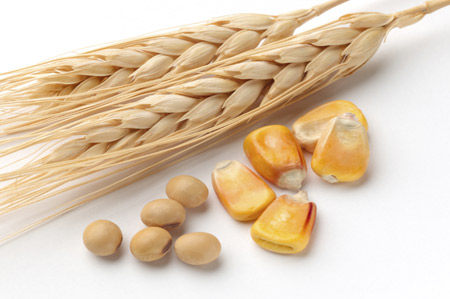Fear of Higher Argentine Export Taxes Triggers Surge in Forward Grain Sales
Category: Grains

(Agriculture.com) – Forward sales of Argentine corn and soybeans are zooming higher versus last year as growers hedge against possible increases in export taxes under President Alberto Fernandez, who is set to take office on Dec. 10.
With nearly half of this year’s corn already sown, and soy planting recently begun, farmers have sold 12.4 million tonnes of corn and 7.2 million tonnes of soy versus 4.6 million and 2.9 million, respectively, at this point last year.
Peronist Fernandez thumped Argentina’s business-friendly incumbent leader Mauricio Macri in the October election. The Peronist party has traditionally supported more government intervention in the economy, including higher export taxes.
“I have already sold almost everything. It is not worth waiting,” farmer Jorge Bianciotto, who manages about 4,000 hectares in the town of Pergamino, told Reuters. Pergamino is in the northern part of the bread-basket province of Buenos Aires.
Export taxes are paid by export companies, which in turn discount the expense from the prices they pay farmers for their crops. Under Argentina’s $57 billion lending deal with the International Monetary Fund, Argentina currently taxes soybean exports at about 25% and corn and wheat at 6.7%.
Exporters are keen to lock in supplies now, to avoid the risk that farmers might refuse to sell their crops later if taxes go up. Growers are also keen to sell before any future export tax increases are factored into the price they get for their grains.
It is widely expected in Argentina’s farm industry that export taxes will increase under Fernandez. He was elected by a wide margin last month when voters punished Macri for the poor state of the country’s recession- and inflation-plagued economy.
Macri was elected with nearly monolithic support from farmers who liked his free-markets platform. He ditched the previous administration’s trade and currency controls and drastically cut export taxes. He promised to “normalize” the country’s highly-regulated economy but his reforms failed.
Gross domestic product is shrinking with inflation galloping at more than 53% per year, 5.9% in September alone.
Fernandez’s running mate was fellow Peronist Cristina Fernandez de Kirchner, a free-spending populist who raised grains export taxes and cracked down on international shipments on corn and wheat during her 2007-2015 presidency.
Vice-President-Elect Fernandez de Kirchner feuded non-stop with the country’s key farm sector during her two terms in power. Under the Fernandez de Kirchner administration corn exports were taxed at about 20% and soybeans at 35%.
The head economist at the Rosario grains exchange, Emilce Terre, described the climate in the agricultural-export sector as one of “uncertainty, where it is not well known what the commercial reality of next year will be.”
Given the absence of specifics regarding Fernandez’s planned agriculture policies, farmers and exporters are bracing for possible tax hikes.
Argentine farmers were expected by the exchange to harvest 51 million tonnes of soybeans and 47.5 million tonnes of corn in the 2019/20 crop year.




